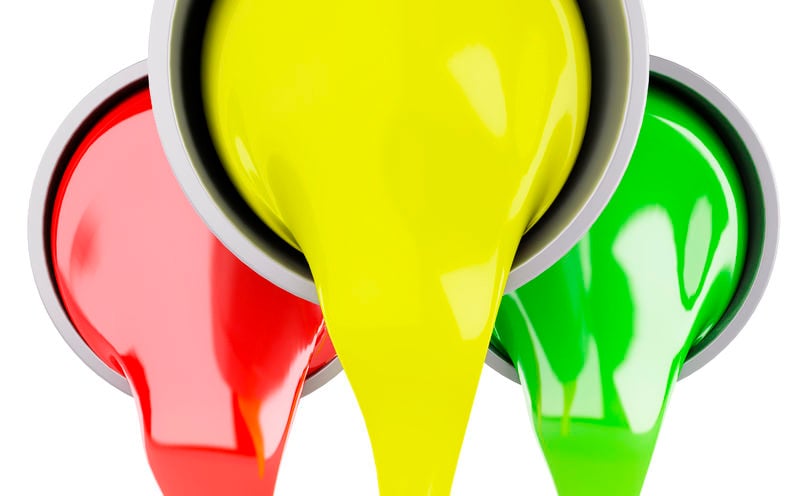Primary Advantages Of Paint Additives

Many coating additives can be the key to a successful coating. They can
enhance aesthetics and corrosion resistance as well as endurance. They also
enhance the properties of the basic sealant formula. They can help control the
formulation's rheology and also speed up curing.
Enhance properties of the basic sealant formulation
The effectiveness of a sealant depends on the properties of the sealant.
These properties are the most crucial ones properties: the strength of the
adhesive, its cohesion strength, and endurance under weathering.
Sealants can be made from a variety of polymer chemistry types. The function
of the sealant will determine the selection. Typical sealants are
toothpaste-like in consistency and will cure in place. There are liquid-applied
sealants and pre-formed sealants.
Before recommending a sealant, the specifier or the user should be aware of
its primary properties and conditions of use. The manufacturer's data sheets are
an excellent source of details. The most effective method to get reliable
information is through valid tests.
Reduce time for curing
A little bit of thinking can go a long ways in reducing the duration of cure
for your powder coating additives. It's
important to take into account the paint's humidity in addition to the
temperature and quality of your sprayer. It is also possible to speed up your
process by heating the paint at the application phase.
It's no secret that epoxy resin takes some time to be set. It's essential to
keep your work space heated. It's also an excellent idea to have an IRT curing
lamp available. This technology uses infrared heat to create heat in the air. It
can penetrate cracks and crevices in your material. The time required to cure
could be reduced by as much as a half hour.
Control of Rheology
Rheology is an important characteristic of paint systems. Rheology has a
significant impact on the coating's behavior, including the formation of films,
shear-thinning leveling, storage stability, and film thickness. Rheological
additives are essential for formulating paints.
There are a variety of rheology supplements available. A lot of these
additives are specially designed for specific purposes. These products can
increase process efficiency, lessen sag and improve flow properties.
There are numerous types of rheological additives that could be used to
achieve a specific application goal. For instance, Lubrizol rheology modifiers
offer unique benefits. They reduce settling of inorganic particles, prevent sag,
and boost gloss. They are also cheaper than other thickeners.
Dispersing and wetting
Dispersing and wetting are two crucial processes in the industry of paint. It
is crucial to incorporate inorganic particles in paints. This is a necessary
process in the manufacturing of plastics. Traditional methods of stabilizing
pigments in water can be affected by impurities and other ions.
There are many advantages to polymer dispersants. They can stabilize paints
and ink systems. They also have the capability of the chelation of multivalent
cations. They are suitable for all kinds of pigments. They can enhance the
colloidal stability of paints, ink systems, and coatings. They can be used to
stabilize solvent-based systems as well as water-reduced systems.
Anti-fouling and foam reduction
The anti-fouling and foam reduction components are essential in the design of
coatings to shield marine vessels as well as their submerged structures. These
are hydrophilic, hydrophobic and amphiphilic surface-active polymers. They are
able to be combined with other materials like organic molecules.
The surface chemistry is crucial in the design of an antifouling fouling
release coating. A good coating for fouling release is one that's durable and
mechanically robust. It should also be capable of weakening biofouling
adhesion.
There have been many approaches in the development of novel fouling-release
coatings. Some blend organic and inorganic compounds powder coating additives.
Some have immobilized bioactive compounds.
The impact of COVID-19 on the global coatings additives market
The COVID-19 outbreak across the United States and other parts of the world
caused disruptions in the paint and coatings supply chain. This was not limited
to the industrial sector, but also affected the manufacturing and construction
industries. On the 11th of March, 2020, the World Health Organization declared a
state of emergency for the field of public health.
The pandemic has adversely affected several major economies. The countries
affected include France, Spain and Italy. The current situation has major
implications for construction, manufacturing and transportation sectors.
The effect of the pandemic was much less on antimicrobial ingredients than it was for other industries. Although prices for antimicrobial ingredients are expected to fluctuate for the foreseeable future however, the situation is likely to improve in the near future.
Коментарі
Дописати коментар